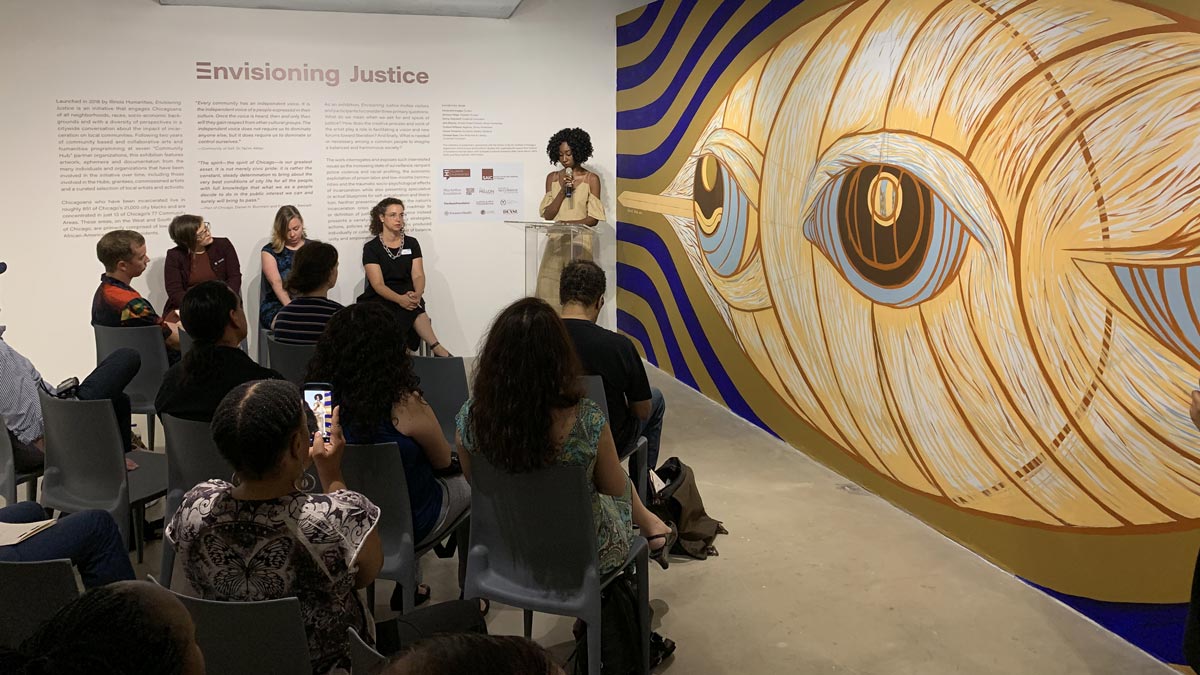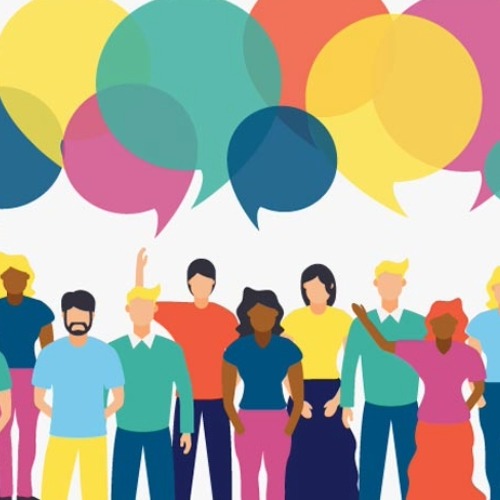MacArthur President John Palfrey shares an update on how we are meeting our commitment to help grantees navigate a crisis in the civil sector.
As a nation, we have been navigating an unsettling new world.
At MacArthur, we met this artificial crisis as an opportunity to do more. In the spirit of accountable leadership to our grantee community and the broader charitable sector, we are sharing how this increased commitment has taken shape.
Starting with Listening
In a crisis, it is natural to feel the need to act and to act fast. But we wanted to ensure we understood what our grantees needed before we jumped in. So, we started this year by listening.
After assuring our grantee community we would stay the course, fulfilling our mission consistent with our values, we reached out to the organizations and people we fund to hear directly from them. We asked how policy changes and government funding cuts affected them, how they were adapting, what they were worried about, and what challenges and opportunities the moment presented.
Many of our grantees face policy shifts and funding freezes that threaten their core work.
What we heard is that these are uncertain times for the charitable sector, the sector made up of people who ensure that everyone living in America has access to the basic ingredients of a good life: human rights, opportunity, enrichment, and a strong safety net in times of need.
Many of our grantees face policy shifts and funding freezes that threaten their core work. Nonprofits have been forced to reduce staff, as well as the scope, scale, and size of their programs and ambitions—decisions that will affect people and organizations in real ways.
Nonetheless and unsurprisingly, the organizations we talked with remain equally steadfast and committed. They are driven by their purpose and demonstrate adaptability and resilience despite the uncertainty and changing circumstances.
Uniting in Advance
We were not the only ones paying attention and listening. My colleagues at peer foundations were hearing the same stories.
Rather than sit and wait, we decided to unite in advance, to stand together and protect our freedom to give and invest—freedoms enshrined in the First Amendment right to free speech and freedom to associate.
Rather than sit and wait, we decided to unite in advance, to stand together and protect our freedom to give and invest.
To date, over 700 foundations, each with their own missions and areas of focus, representing nearly all 50 states, and with different perspectives and values, have signed a statement to defend our freedom to direct our resources.
And many in this coalition are giving more and doing more, just as we are. We are acting to preserve progress, advance issues, and invest in places and people, and we continue to improve and celebrate the lives and courage of everyday Americans today and tomorrow.
Meeting the Moment
We listened to understand how our community needed us to show up to meet the moment, then we moved to respond. After we reached out to all our active grantees and investees, we planned how to use grant budgets for the year to support organizations navigating immediate threats or preparing for longer-term efforts to defend civil society.
Even before increasing our payout, we reached for levers within our control to distribute funds more quickly. We expedited $42 million in planned grant payments to reach organizations sooner. And we lessened burdens of reporting and applying, saving time while maintaining our due diligence.

The 2019 Illinois Humanities exhibit “Envisioning Justice” used art and literature to foster dialogue about mass incarceration. Credit: Illinois Humanities
We made additional grants and gifts with funds from our increased payout. To date, we have committed $60 million on top of our original 2025 budget to more than 60 organizations that are defending democracy or defending their missions in critical areas such as climate action, criminal justice reform, and local journalism.
Organizations receiving additional support include:
- Accountability Lab makes governance work for people by ensuring resources are used wisely, decisions benefit citizens fairly, and people lead secure lives ($500,000).
- Activating Change focuses on ending the widespread victimization and mass incarceration of disabled and Deaf people by bringing together people and organizations across the country working in disability, survivor advocacy, and justice systems reform movements ($250,000).
- Chicago Bar Foundation will establish the Nonprofit Legal Support Project, which offers legal advice, consultation, and representation to nonprofit organizations in Illinois with collaborating partners ($1 million).
- Illinois Humanities fosters dialogue, community, self-reflection, and civic engagement through the humanities ($1 million).
- Lawyers' Committee for Civil Rights Under Law works to secure equal justice for all through the rule of law, and seeks to ensure that all Americans have the voice, opportunity, and power to make the promises of our democracy real ($1 million).
- Student Press Law Center promotes, supports, and defends the First Amendment rights of student journalists and their advisers at the high school and college levels ($500,000).
- Urban Institute conducts economic and social policy research and evaluation to understand and solve real-world challenges in a rapidly urbanizing environment ($1 million).
We also looked beyond our grantmaking and considered all the tools at our disposal. In collaboration with our programs, the Impact Investments team is working to mobilize private capital and respond to urgent cash flow challenges. Their extra commitments this year are expected to total approximately $25 million.
We are offering training, individualized coaching, and other resources to all MacArthur-supported nonprofits to help build their resilience. For example, hundreds of grant and impact investment recipients have participated in webinars on nonprofit financial management and legal issues.
There is more to do, and we need to work together to do it.
While we hope these responses are helpful, we know it is not enough. We are directing resources to the communities and organizations we have relationships with, but the need certainly goes beyond our networks. And philanthropy on its own cannot close the funding gap that federal funding freezes and cuts created. There is more to do, and we need to work together to do it.
Continuing to Be Courageous
This year has been unpredictable in ways that can breed deep instability, division, and distrust. It has disrupted bedrock institutions that help make our country work for everyone: hospitals, schools, libraries, museums, food banks, to name a few. And it often looks like the U.S. is questioning basic shared values like liberty, equality, and opportunity.
These are, indeed, uncertain times.
MacArthur remains steadfast. What we know is that we will continue to listen to the people who feel the ripple effects of this social sector crisis to inform and to plan our approaches. We will continue to work with our peers, standing together to protect our right to give in alignment with our values. We will continue our countercyclical strategy of providing more in a time of need. And we will remain committed to providing as much flexibility as we can to our grantees, who deserve the latitude to make the best use of their resources.
As we stated before, we expect to continue to Set it at Six in 2026.
We remain hopeful that civil society, nonprofits, and the foundations and donors who support them will be stronger after facing and overcoming these challenges together. In every crisis there is opportunity—to learn, to grow, to reimagine and create a better future together. We hope you will join us.





